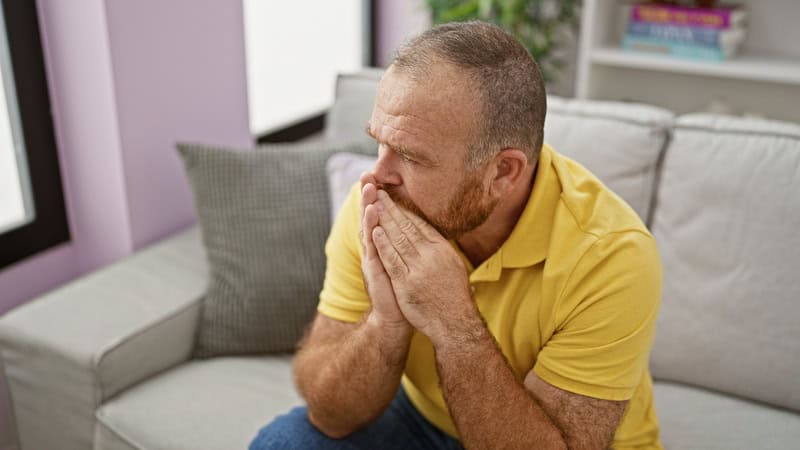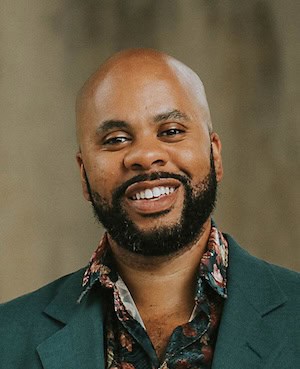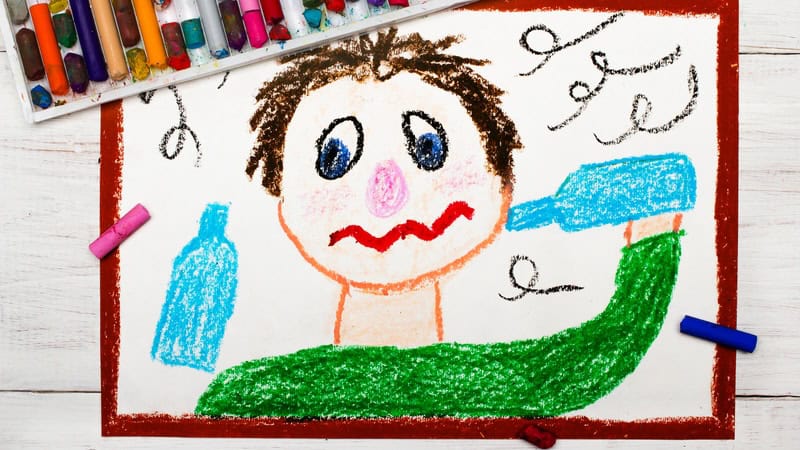Caregiver Grief Mixed with Guilt
Can he find peace and forgiveness after his father’s death?

After caring for his father during his last four years, a son’s caregiver grief is mixed with guilt at impatience he expressed toward his father before he died. Advice columnist Eric Thomas weighs in.
Dear Eric:
The last four years of my father’s life, I was a near constant caregiver. I visited him daily, did his lawn work, took him to doctor’s appointments, to the barber, occasionally to dinner or a movie. I always took care of his finances and medications.
He would call me as many as 10 or 15 times a day about various things or just to talk.
After he died about a year ago, I have been overcome with guilt. There were times when his constant needs overtook my life. I had no social outlet of my own. I didn’t even travel because I was so concerned about what would happen if I was gone.
I didn’t handle this pressure well and would occasionally lash out in anger at my father. A week before he died, I made him cry. I live each day now with a regret I cannot seem to shake. I visit his grave every week and ask for forgiveness.
I can tell myself that if I had not been able to help him, he would not have been able to stay in his home, something he desperately wanted to do until the end. Others have commented on my sacrifices for my father. But I still have this feeling that I was a bad son, and it weighs down on all aspects of my life now. I’ve become isolated in my guilt and grief. I don’t know what I need to do to once again find joy.
– Still Grieving
Dear Still Grieving:
My heart aches for you. There’s no perfect caregiver; there’s no perfect son; there’s no perfect grief.
With time, try to offer yourself forgiveness. Because it sounds like, even with the moments of frustration or fatigue, your father didn’t see you as a bad son. When faced with the uncontrollable – the illness of loved ones, our inability to stop death – we often hyperfocus on what we think we can control. But, by your own account, you did the best you could, and your father’s quality of life was better because of it.
If you can, please work with a grief counselor to process these feelings. Keep talking to those you trust, who can listen without judgment and without trying to rush you. As Megan Devine writes in her book “It’s OK That You’re Not OK”, “Unacknowledged and unheard pain doesn’t go away. The way to survive grief is by allowing pain to exist, not in trying to cover it up or rush through it.”
A grief support group will also be beneficial. The Family Caregiver Alliance (caregiver.org) is one place to look for groups and other resources. Lastly, I recommend the books “After Caregiving Ends” by Denise M. Brown and the new collection by storyteller Vignette Fleury, “Sacred Love: Vignettes on Caregiving and Family”. This is not forever. I wish you peace.
 R. Eric Thomas (he/him) is a national bestselling author, playwright, and screenwriter. His accomplishments include “Eric Reads the News,” a daily humor column covering pop culture and politics, serving as the interim Prudie for the advice column “Dear Prudence,” and “Congratulations, The Best Is Over.” Send questions to R. Eric Thomas at eric@askingeric.com or P.O. Box 22474, Philadelphia, PA 19110. Follow him on Instagram and sign up for his weekly newsletter at rericthomas.com.
R. Eric Thomas (he/him) is a national bestselling author, playwright, and screenwriter. His accomplishments include “Eric Reads the News,” a daily humor column covering pop culture and politics, serving as the interim Prudie for the advice column “Dear Prudence,” and “Congratulations, The Best Is Over.” Send questions to R. Eric Thomas at eric@askingeric.com or P.O. Box 22474, Philadelphia, PA 19110. Follow him on Instagram and sign up for his weekly newsletter at rericthomas.com.
©2024 Tribune Content Agency, LLC.
Find more words of wisdom like caregiver grief – from insensitive parents to a husband’s mid-life crisis, DNA surprises, and more – in the Boomer Advice for Life department.


